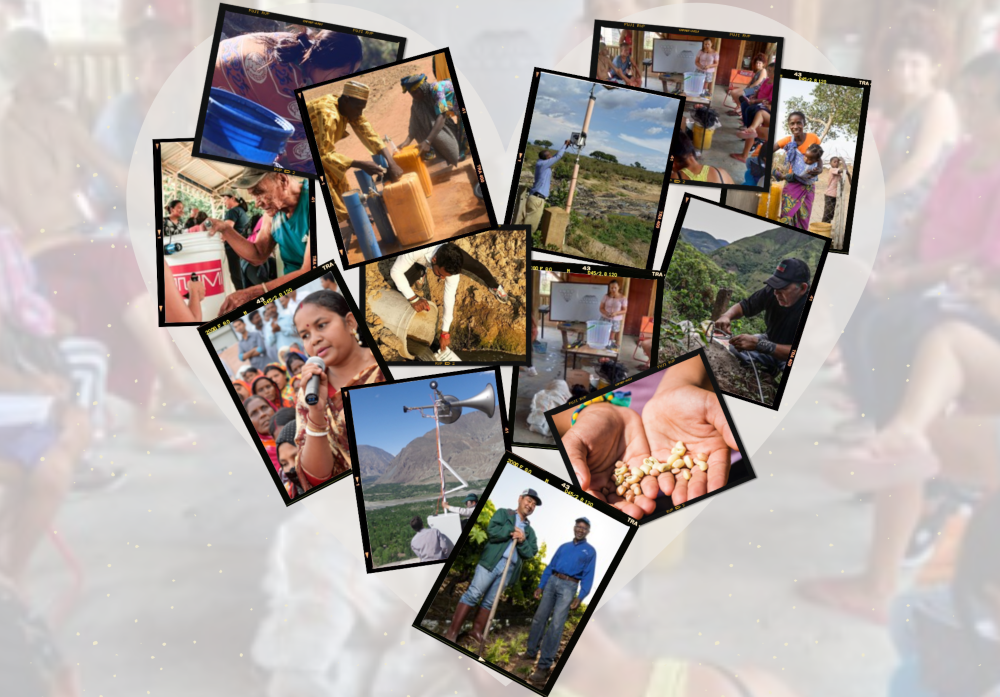Interviews enabled us to take a closer look at the submissions for these countries and emerging trends in each.
For instance, in China, youth dominated the submissions as compared to the other four countries, with 45% of the change stories submitted by youth (under 35). GWP China connected this to their open, fair, and balanced way of working with all interest groups, particularly youth, as they “let practitioners, not powers, make decisions on their programmes, for they know what to achieve and how to do it.”
In Uzbekistan, most submissions were sent in from civil society organisations, and South Africa benefited from the greatest percentage of submissions from women. Both countries indicated that the high numbers might be attributed to new and updated legislation meant to improve empowerment, inclusion, and participation of these often-marginalised groups, recognising them as a driving force for environmental and water management.
Thematically, an integrated approach to Water, Sanitation and Hygiene (WASH) was a major connecting thread of the Kenyan change journeys, as they made the connection between negative climate impacts on key economic factors (agriculture, livestock, fisheries, tourism) and the effects of the resulting poverty on WASH conditions.
In India, the use of nature-based solutions took centre stage as a cost-effective and flexible approach for water resource management and disaster risk reduction. Achieving desired results depends on local leadership and engagement of indigenous peoples and local communities and valuing their knowledge and traditions.
Similar successes
We asked each GWP Country Water Partnership (CWP) what achievements they are most proud of, and what ingredients they think are needed for success at country level. In turned out that many successes were shared by all the countries.
One of the main achievements for GWP Kenya and GWP Uzbekistan was centred on the facilitation of stakeholders to discuss the SDG 6.5.1 target on the degree of integrated water resources management implementation. Also, all countries were proud of GWP’s reputation as a reliable, active, and knowledgeable organisation for facilitating collaboration between various stakeholders on Integrated Water Resources Management (IWRM). This is shown by the close working relationship that each of the CWPs has with various decision-making entities.
For instance, in South Africa, they successfully co-hosted dialogues on a national water-energy-food (WEF) nexus policy with the Departments of Water and Sanitation, Mineral Resources, and Energy (DMRE), Agriculture Land Reform and Rural Development (DALRRD), Planning, Monitoring, and Evaluation (DPME). Meanwhile, in Uzbekistan, they have been working with the government on various programmes, including a project to promote a more integrated approach to the management of the Aral Sea basin.
The key ingredients to successfully advance governance and management of water resources that resonated strongly across all CWPs are these:
- Enhancing equity via involvement and inclusion: Local communities and authorities and women and youth are involved as integral stakeholders in every project/programme undertaken.
- Expanding the network to local and grassroots levels: This not only expands the reach of the CWP, but it is also an opportunity to connect organisations that are doing similar work with similar goals, thus optimising resources and strengthening relationships to support the sustainable management of their water resources.
- Increasing interactivity through electronic and social media presence: It is valuable to keep up-to-date with current communication trends to reach various audiences and ensure a continued virtual presence on different platforms.
- Respecting, learning, and building on what was established by different generations of leadership in the CWP was noted by GWP China.
What more is needed?
Collectively, the partners asked for more support to strengthen their structures at country level and for their voices to be heard and recognised within the international community. Some of their specific priorities include:
- Enhanced cooperation and interaction with relevant ministries and departments, and keeping the momentum going in the spirit of strengthening multi-stakeholder partnerships;
- Building on existing SDG 6.5.1 and SDG 6.6.1 work and progressing further on IWRM implementation and the use of freshwater ecosystem data in sector-wide planning;
- Implementation of National Adaptation Plans and a focus on climate change resilience projects in agriculture, with special attention to water-saving technologies;
- Capacity building at country level, especially on IWRM and WASH.

